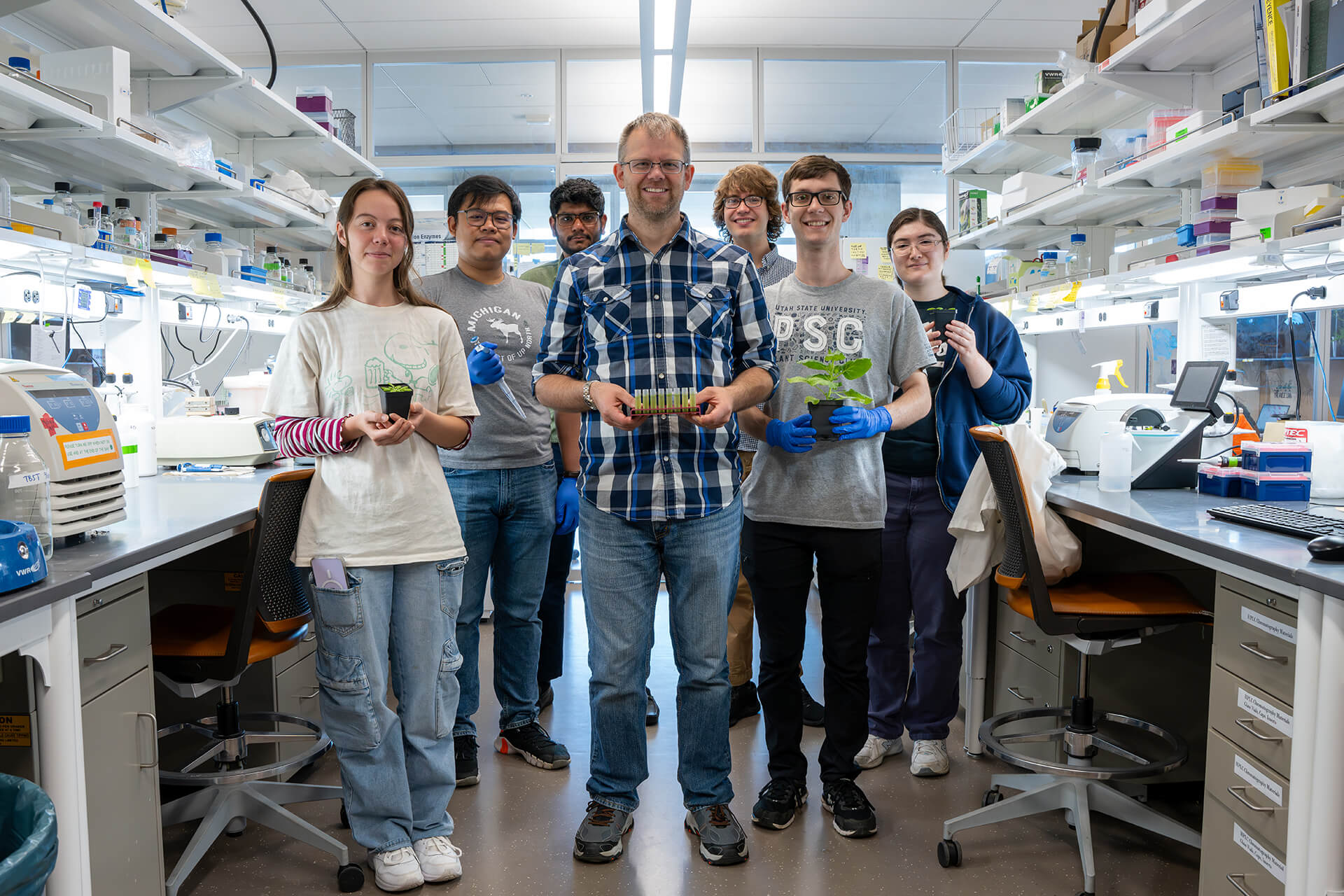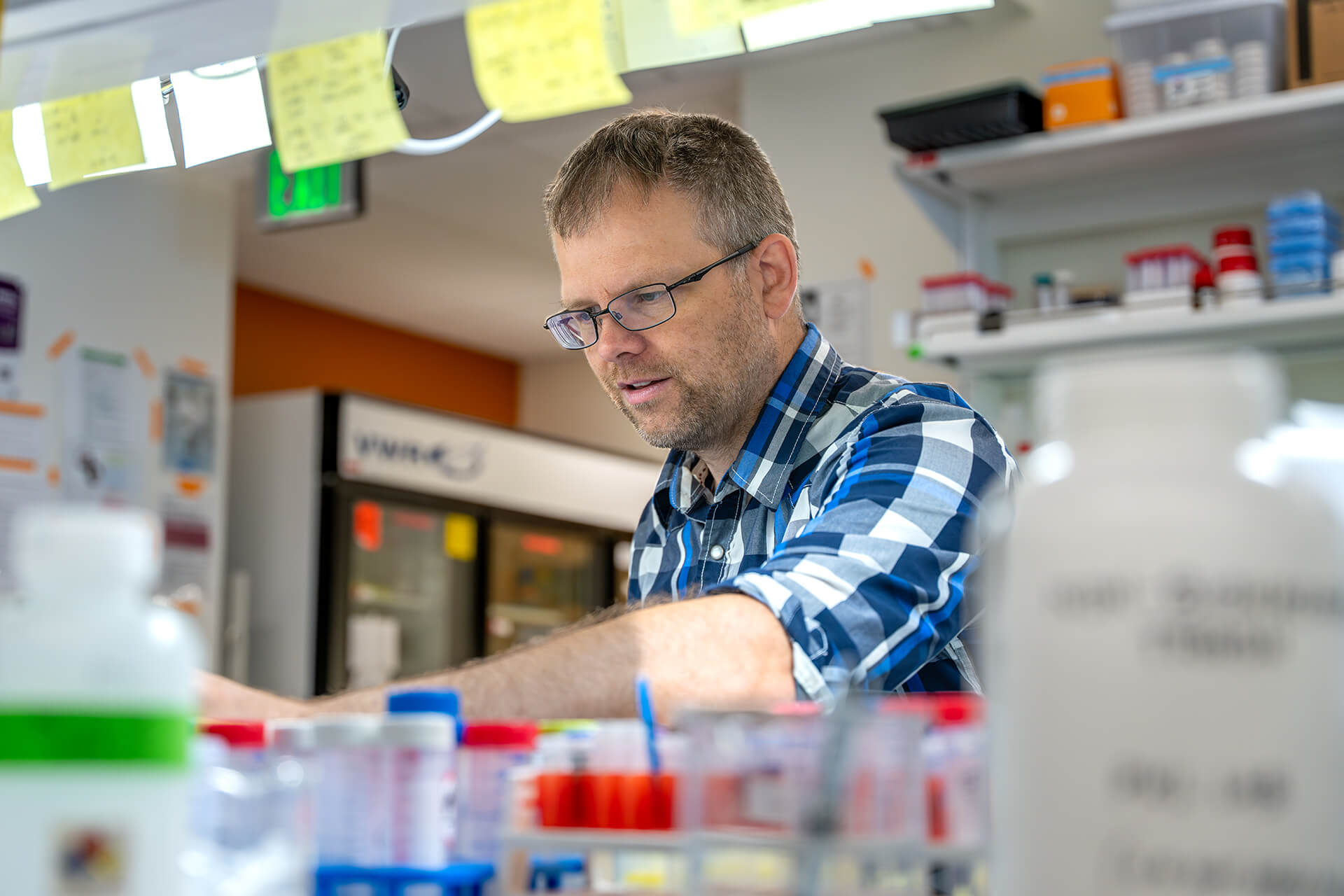Lundquist receives NSF CAREER Award
Article Highlights
- Peter Lundquist, an assistant professor in the College of Natural Science, has won a $1.5 million Faculty Early Career Development Award from the National Science Foundation.
- The award will support his cutting-edge research into the biochemistry of how plants respond to stress.
- The grant will also support new education and outreach designed to help students take full advantage of MSU’s unique, state-of-the-art opportunities in plant science and biochemistry.
The National Science Foundation has awarded Peter Lundquist a prestigious 2024 Faculty Early Career Development, or CAREER, Award for his pioneering plant research and devotion to education at Michigan State University. Over the next five years, he will receive $1.5 million to accelerate his cutting-edge research and establish new modes of training and outreach.
“The very generous CAREER grant will give us the financial resources to strike at the heart of what we want to do in the lab long term,” said Lundquist, an assistant professor in the Department of Biochemistry and Molecular Biology and a member of MSU’s Plant Resilience Institute. “It enables us to bring the right people here and secure the equipment we need. It also puts me in a position to work with undergraduate and graduate students, and garner interest in our field.”
“As a department, we are very excited about the research Dr. Lundquist will accomplish with this award,” said Olorunseun Ogunwobi, chair of the Department of Biochemistry and Molecular Biology. “We are anticipating multiple impactful novel discoveries and publications to result from this award. And we are eager to see additional graduate and undergraduate students receive high quality research training.”

Plants have been a focus in Lundquist’s family for generations. His father was a plant scientist and his grandfather a farmer. From a young age, Lundquist spent time in the lab watching corn plants grow and flasks of bacteria shake, experiences he describes as influencing his own career path.
Lundquist earned his doctorate at Cornell University and served in postdoctoral positions in Germany and then Oklahoma.
He joined MSU in 2018, where he established the Lundquist lab to understand adaptive mechanisms that plants and crops employ to tolerate stresses from pests, disease, extreme temperatures and more.
For Lundquist’s CAREER project, he will zero in on a specific challenge his lab has been studying — the elusive function of what are known as plastoglobules. All photosynthetic organisms have these components in their chloroplasts, the photosynthetic part of the plant cell. While most components of the chloroplast are well understood, these lipid droplets are understudied, leaving the field wide open.

“I think I’ve always been drawn to these questions and topics that are ignored by most others,” Lundquist said. “I can see a lot of opportunity in that and that attracts me.”
Lundquist hopes to understand fundamental questions about plastoglobules and harness the answers for improvements, such as making crops more resilient and nutritious.
To that end, he and his team believe plastoglobules orchestrate adaptive responses within the plant. As a plant responds to a challenge, the plastoglobules are there to help facilitate these adaptations and repair the damage.
The researchers have observed that, under stress, plant plastoglobules proliferate in number and increase dramatically in size. When the stressor is removed, the droplets shrink back down in both size and number.
To investigate further, Lundquist and his team are studying a set of six kinases, or enzymes that add phosphates to molecules, that they have found within plastoglobules. Lundquist hypothesizes that these kinases are “master regulators” of plastoglobule proteins and function. If he is correct, then looking at these kinases could be an efficient way to unravel all the functions of the plastoglobules.
“To my knowledge, we are the only lab in the world that solely studies these structures. It’s a blessing and a curse to be pioneers,” he said. “It’s great fun because there is so much to explore and many directions to go. However, when we run into a roadblock or challenge, we can’t look in the literature, we have to figure it out ourselves.”
For the educational component of his CAREER project, Lundquist is developing a proteomics training module for graduate students where they will prepare and run samples on campus and analyze the data. He will also focus on recruiting undergraduates into the plant sciences by making them aware of MSU’s unique, state-of-the-art opportunities in plant science and biochemistry.
“Michigan State is arguably the premier plant science institution in the country,” Lundquist said. “The quality and breadth of the research here is vast, yet so many students come here unaware of opportunities in the plant sciences. I want to ensure they are apprised of all of the opportunities at MSU.”
- Categories: